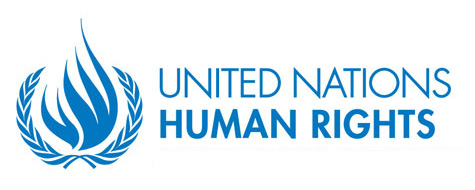Human rights are inherent to all human beings. They are defined and established in more than 80 international legal instruments and include fundamental protections of human dignity, needs, and freedoms, such as food, housing, privacy, personal security, and democratic participation. Since the adoption of the Universal Declaration of Human Rights (UDHR) in 1948, the responsibility to protect human rights has primarily fallen on governments. Beginning in the early 2000s, however, it became increasingly clear that the freedoms enshrined in the human rights framework could also be violated—and promoted—by the private sector.
In 2011, the UN Human Rights Council unanimously endorsed the UN Guiding Principles on Business and Human Rights (Guiding Principles), the first international instrument to assign companies the responsibility to respect human rights. The Guiding Principles state that governments must put in place good policies, laws, and enforcement measures to prevent companies from violating rights; that companies must refrain from negatively impacting rights even when governments are failing to create or enforce necessary laws; and that victims of corporate abuses must have access to effective remedy. As part of this responsibility, the Guiding Principles require companies to undertake due diligence to identify and manage their negative human rights impacts.
This brief identifies the 10 most relevant human rights impacts for businesses operating in the biopharmaceutical industry (“pharma companies”). This information is gathered from BSR’s direct engagement with pharma companies, as well as our 25 years of experience helping companies in all sectors manage their human rights risks. This primer was drafted before the onset of the COVID-19 crisis and has been enhanced with insights collected as the crisis unfolds.
In addition to the range of human rights relevant in general business operations (e.g., workplace rights, community safety), the right to health is particularly relevant to pharma companies. In recent years, society’s expectations for pharma companies to advance this right has broadened. Launched in 2008, the Access to Medicine Index ranks pharma companies’ efforts to expand access to medicine in low- and middle-income countries and has gained the support of investors as a key indicator of such efforts. The right to health also underpins a number of other rights. For example, the right to health sets the stage for the right to an adequate standard of living, because good health is key to securing and maintaining a job. In contrast, during the COVID-19 pandemic, the protection of public health risks infringing on the right to privacy, as personal data is collected in an effort to identify and track people who are sick. These interconnections raise additional human rights risks and opportunities for the pharma industry, with some of the most salient covered below.
Top Human Rights Risks
1: Business Ethics
Because pharma companies engage with a broad network of other actors who share a responsibility to respect the right to health, scrutiny of business connections has been increasing in recent years, including of sales to healthcare providers and practitioners and government lobbying by regulatory affairs teams. These interactions introduce risks of corruption or conflict of interest: For example, sales representatives can influence prescribing behavior. To answer stakeholders’ concerns and questions, companies must increase transparency and promote responsible sales and marketing practices as well as lobbying practices.
2: Ethical Clinical Trials
The Declaration of Helsinki sets out that medical research is subject to ethical standards that protect the health and rights of human subjects. Companies must ensure that appropriate steps are taken to achieve this, including stakeholder engagement, communication about health risks, company processes to track the well-being of research participants, and ensuring that research participants—including vulnerable persons such as children or illiterate patients—give informed consent. Post-trial access to treatment for patients involved in trials and disclosure of results can also be integrated into this topic. The COVID-19 crisis has highlighted new challenges: ensuring business continuity of clinical trials in times of pandemic and guaranteeing ethical standards while conducting clinical trials under tight time pressure.
3: Privacy
The proliferation of electronic health records and other digital health tools has introduced risks associated with the sharing of patient information among companies, healthcare providers, insurers, governmental institutions, and other players in the healthcare system. These risks have intensified during the COVID-19 pandemic, as health and other personal data is collected in the workplace and in public, often via integration with facial recognition and other biometric technologies. This in turn raises concerns about security of data storage, future use and misuse of data, and the risks of empowering authoritarian government. Pharma companies must put measures in place to ensure that patient data remain confidential and that patients have access to their data upon request. This includes due diligence of business partners’ processes—notably for clinical research organizations—and continuous monitoring of potential threats.
Reference: UDHR Articles
12
4: Counterfeit Medicines
According to the World Health Organization, one in 10 drugs sold in developing countries is fake or substandard, leading to hundreds of thousands of deaths every year. Counterfeit medicines pose a real danger to patients’ health because they do not contain the expected amount of active ingredient and/or do not meet standard requirements for safety, quality, and efficiency. They also contribute to patients’ distrust of the healthcare system. Preventing counterfeiting implies both singular actions—like implementing mass serialization or engaging with healthcare practitioners to raise awareness of risks and detect counterfeit products—and collaborative efforts involving other private actors and government ministries of health.
Reference: UDHR Articles
3
5: Affordability of Medicines
Sustainable Development Goal 3 aims at achieving universal health coverage and providing access to safe and affordable medicines and vaccines for all. For many people today, including in high-income economies, the price of medicines can be a barrier to accessing healthcare. Companies developing, manufacturing, marketing, and distributing pharmaceutical products face increasing scrutiny of their pricing policies and their role in making medicines more accessible and affordable for all patients, especially for low-income patients. Pharma companies need to take an inclusive approach to product pricing, intellectual property protection, and licensing to promote the right to health by ensuring that the majority of patients in need can afford their products, regardless of income level or geography.
6: Accessibility of Medicines
Beyond affordability, accessibility of medicines is another barrier to healthcare for many patients, including vulnerable and disadvantaged populations—for example, people living in certain geographies, rural communities, and migrants. Accessibility can be limited or unstable due to dysfunctional distribution channels and inefficient health systems. Furthermore, medicine registration policies in certain countries also pose challenges for pharma companies wanting to register products in these countries. Companies should be innovative and build new types of partnerships to ensure that their drugs can reach patients in need, especially in developing countries and in rural areas. The COVID-19 pandemic and the race for vaccine development has put accessibility under a new political spotlight with universal access to a COVID-19 vaccine deemed non-negotiable.
7: Research and Development Strategies
Drug development processes can take years, sometimes decades, and require important investments. This can lead companies to focus their efforts on more profitable diseases (e.g., cancer treatment) rather than on global health diseases (e.g., HIV/AIDS, malaria, tuberculosis) or neglected diseases (e.g., dengue, leprosy), which primarily affect low-income patients in resource-constrained geographies. Here again, partnering with other actors (e.g., government agencies, impact investing funds, foundations) and developing innovative business and revenue models should be part of each company’s approach to improve access to healthcare.
8: Pharmaceuticals in the Environment
There is a compelling body of research on the negative effects on humans, ecosystems, and nature at large resulting from the accumulation of pharmaceuticals in the environment around manufacturing sites, such as in water systems. These effects range from the near elimination of entire species to unknown long-term health impacts. This has major implications for global health and calls for pharma companies to take action, which involves a wide range of measures, from improving the monitoring of third-party suppliers who provide them with active pharmaceutical ingredients (APIs), to considering environmental impacts right from the R&D phase, to educating consumers on responsible disposal of unused medicines.
Reference: UDHR Article
25
9: Water
Beyond risks associated with pharmaceuticals in the environment, drug manufacturing operations require consistent access to supplies of high-quality drinking water necessary for manufacturing operations. In water-stressed areas, this can reduce availability of water resources for communities living around manufacturing sites. To mitigate this risk, companies can set quantifiable goals and targets for water-use efficiency for their manufacturing sites and closely monitor water consumption of strategic suppliers. They can also form strategic partnerships with other actors to address water scarcity risks at the regional level around particularly water-constrained sites. As climate change intensifies, impacting water availability, pharmaceutical companies should integrate a climate lens into their business continuity plans in order to prevent drug shortages.
Reference: UDHR Article
25
10: Pharmaceutical Supply Chain
Pharma companies rely on highly complex supply chains comprising thousands of suppliers around the world. As a result, monitoring of suppliers’ labor standards remains limited, which represents a high risk in emerging markets where the workforce is cheaper and where regulations—notably around workplace health and safety—are not properly enforced. The COVID-19 pandemic has intensified risks related to health and safety as well as labor rights, particularly for vulnerable and migrant workers. Companies should promote decent working conditions in their supply chain with appropriate due diligence and monitoring, as well as participation in collaborative efforts to drive harmonized standards—for instance, through the Pharmaceutical Supply Chain Initiative. The COVID-19 crisis also raises the question of supply chain disruption and business continuity, as major drug manufacturers rely on a handful of countries for active pharmaceutical ingredients supplies.
Emerging Human Rights Issues
1: Growing Risk of Pandemics
The current COVID-19 crisis raises the alarm for the scientific and international communities to take the increasing threat of pandemics seriously. The healthcare industry has an essential role to play in pandemic preparedness, which requires partnerships between public and private actors.
2: The Nexus between Climate and Healthcare
Climate change impacts on human health include changes in the distribution and burden of vector-borne diseases (such as malaria and dengue) and water-borne infectious diseases, human undernutrition from crop failure, and occupational health risks, as well as noncommunicable diseases and disorders like respiratory diseases, heart disease, depression, and mental disorders. Healthcare companies must stay in business and ensure business continuity to be able to supply drugs and health solutions to patients.
3: Artificial Intelligence
AI is opening many opportunities when it comes to healthcare: identifying high risk patient groups and launching prevention therapies, automating diagnostic tests, adapting therapies and drug formulations to patients, and improving R&D processes. However, these applications come with human rights-related challenges that need to be addressed carefully: privacy (and risks related to misuse of data), data-related discrimination (data is not equally available across geographies and demographics), and the deepening digital divide and gaps in health literacy—hence unequal access to healthcare.
Top 3 Opportunities for Positive Impact
1: Promoting Access to Healthcare
This remains the top expectation of civil society and is becoming increasingly important for investors. Companies can promote access to health through various initiatives, often involving partnerships with other organizations. Promoting access to health can be done at many different stages, including research and development, registration of products, pricing, and distribution.
2: Patient-Centered Care
Patient-centered care encourages the active collaboration and shared decision-making between patients, families, and care providers to design and manage a care plan. Focusing on patients as rightsholders and engaging them as much as possible offers many opportunities for securing their rights and can be particularly empowering for vulnerable individuals.
3: Supplier Engagement
By engaging actively with strategic suppliers, including suppliers posing higher risks in certain geographies and for certain categories of supplies (e.g., construction, site services, carnauba wax), the healthcare industry has an opportunity to promote better working conditions for supply chain workers as well as raise environmental standards for supplier facilities.
Get the Primer
DownloadLet’s talk about how BSR can help you to transform your business and achieve your sustainability goals.




